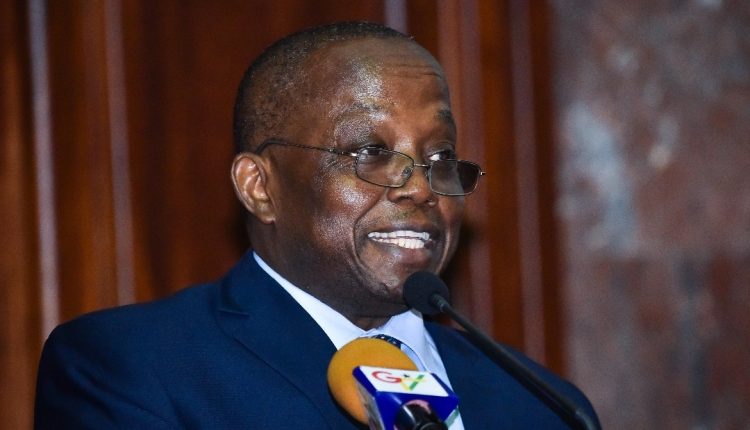
Ghana must take actions to make corruption unattractive — Auditor-General
The Auditor-General, Mr Daniel Yao Domelevo, has stressed the need for Ghana to put in place measures that will make corruption unattractive.
Mr Domelevo proposed that the government should privatise the fight against corruption.
In an exclusive interview in Accra last Friday on his return from an international anti-corruption conference (IACC) in Denmark, the Auditor-General said for private participation in the fight against corruption to be attractive, private agencies or groups should be paid for their services.
Closely associated with the fight against corruption, he said, was the need for the promulgation of the Right To Information (RTI) Bill.
Lifestyle audit
Additionally, Mr Domelevo called for a lifestyle audit mechanism, where people should be made to disclose how much they earned and how they were able to acquire certain properties.
“We need an approach that will prevent people from benefitting from corruption, whether within or outside the country,” he stated.
In view of that, he said, it was important for Ghana to initiate bilateral arrangements under which other countries would be willing to give information on the activities of its citizens who engaged in corrupt practices.
“We live in the communities with those who undertake corrupt activities,” he said, and expressed regret that even though people knew the thieves, they were the ones who were accorded the most respect.
“In Africa, for instance, the way we live is that the end should justify the means, not the other way round,” he said.
Sanctions
“If we gather the courage and expose people who engage in corrupt practices for them to be sanctioned, and if we stop providing a safe haven for them, corruption will become distasteful and the appetite to steal from public funds, for instance, will drop,” he said.
As a way of addressing corruption from the global perspective, Mr Domelevo called for an international treaty or a United Nations (UN) resolution to deal with issues of corruption.
A norm
The Auditor-General expressed worry that corruption was becoming a norm and that people were not taking office because of their competence but because they saw taking office as a means to enrich themselves.
He called for a national discourse to discuss the type of public servants “we want and the way we want them to perform”.
“It is important that we improve on our public financial management and hold our public officials accountable,” he added.
Mr Domelevo said corrupt officials were to be feared more than armed robbers, saying that “when a contractor diverts money meant to construct or repair roads and accidents occur and lives are lost, do we take that into consideration?”
“Have we taken into account the number of children of school age who are not in the classroom because of corrupt officials?” he asked.
Expensive democracy
The Auditor-General referred to the Denmark conference on anti-corruption and said similar views were shared and that participants were of the view that democracy had become expensive, to the extent that those who were desirous of contesting elections had to sell their properties or borrow money to finance their campaigns.